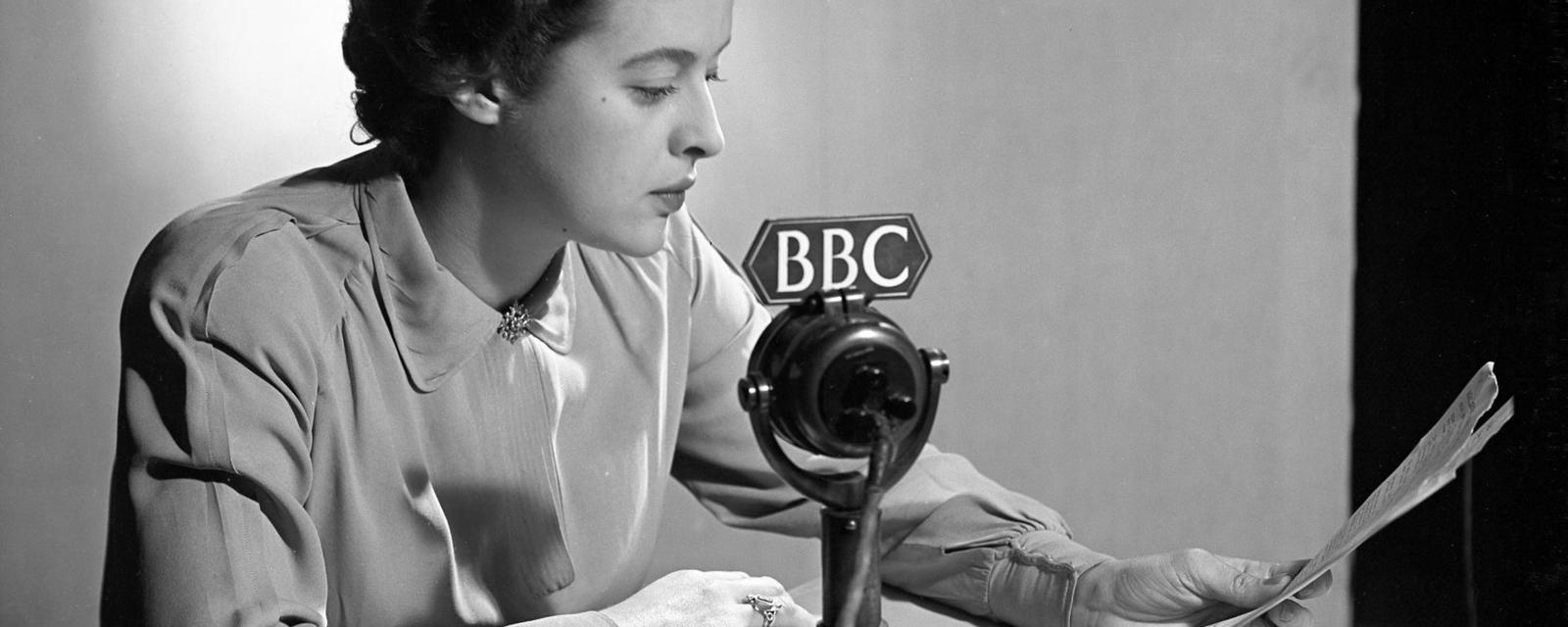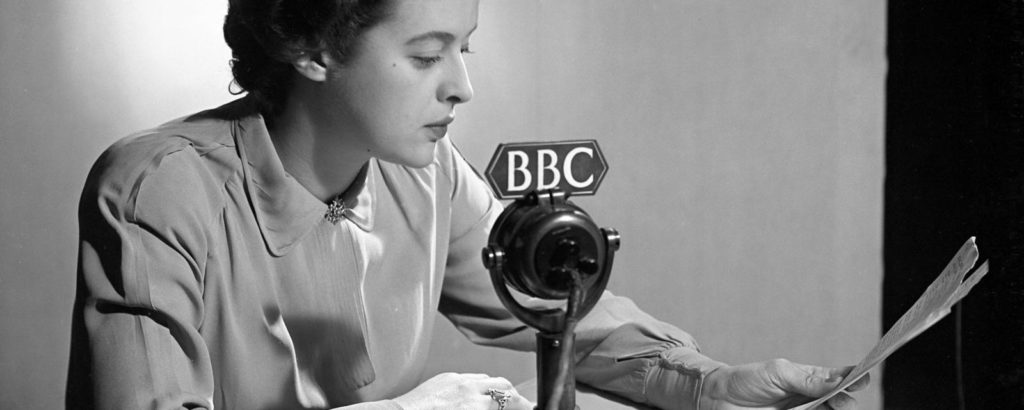What does your accent say about you?

Accents can be subject to subtle forms of prejudice, but does that mean some are more appealing and trustworthy than others? BBC Future takes a look.

By ![]()
On 14 November 1922 the BBC broadcast its first radio report to the nation. We can’t listen to it because it was not recorded, but we know this: the broadcast was read in flawless received pronunciation (RP), commonly known as the Queen’s English. It is considered to be the language of elites, power and royalty.
For many years, the BBC would only allow RP accents to appear on its airwaves. That this accent became synonymous with the voice of a nation had clear connotations. RP was trusted, authoritarian and sincere. Fortunately, the BBC now allows all sorts of regional accents on its broadcasts – and even encourages it, aiming to both represent the diverse audience the BBC has and to draw new people in.
While the BBC no longer broadcasts only in RP, it turns out that the bias that once existed for it is still ripe in society today. Our accents can provide a window into our social backgrounds – and our biases. Our partialities can be so strong that they even affect our perception of who is, or is not, trustworthy.
Humans are very quick to judge a person based on accents, and are often unaware we do so. “Accent can trigger social categorisation in a prompt, automatic, and occasionally unconscious manner,” says Ze Wang of the University of Central Florida. We often can identify a person’s accent as soon they say hello.
Our trust for certain accent starts extremely young. There is evidence to show that affinity for language even starts before birth. We know for instance that babies prefer the languagethey heard most while in the womb. In one study, researchers repeatedly played a made-up word while women were pregnant. When the babies were born, brain scans showed that only babies who had heard this word responded to it.
By the time babies are several months old, they can differentiate between languages and dialects. Early on, babies start to have an affinity for others who speak their native language. In one 2007 Harvard University experiment, babies watched two people speak on a screen, one in a familiar tongue and one that was foreign. One on-screen speaker then offered the babies a toy – which magically popped up from behind the screen at the same time. The babies preferred the toy given by the person who spoke their native language and accent.
“Right away in the first year of life babies are starting to show this social preference – moving towards someone who speaks in a way that’s familiar to them,” says the study’s lead researcher Katherine Kinzler, now at Cornell University.
Prince Charles speaks the Queen’s English while Cheryl Tweedy has a strong Newcastle accent (Credit: Getty Images)
To Kinzler, accents are under-studied. They tie us to our identity in a similar way that our gender and race does. For some children, accent can be a more powerful indicator of group identity than race, she has found. When five-year-olds were shown pictures of either black or white children, they preferred those who were the same race. At this age, they don’t have the motivation to control prejudice in the way adults do, says Kinzler.
Children trust native speakers better than they do foreign-accented speakers
But when colour was pitted against accent, the children preferred those who shared their accent – even if they were of a different race.
This work reveals that in our early years, the accents we trust most are those which sound familiar. It makes sense that we trust somebody who speaks like us, says Kinzler; they are likely to know more information about your own community.
In another study, she found that children trust native speakers better than they do foreign-accented speakers.
As children grow up they become more attuned to the social status or stereotypes that have been glued on to various accents. RP English is said to sound posh and powerful, whereas people who speak Cockney English, the accent of working-class Londoners, often experience prejudice. The Birmingham accent fares even worse – which could be the result of TV shows which depicted its residents as “slow, lazy and thick”, researchers wrote. Indeed, one poll found the Birmingham accent least attractive but rated Irish as having the nicest twang.
Trust in accents can change over time depending on our social circles and daily relationships
When it comes to trusting accents, there seem to be two things at play. First, an accent represents part of your identity. But as you get older this might clash with an accent you aspire to sound more like, say one that is deemed more prestigious, or less stuck-up. One 2013 poll of more than 4,000 people found RP and Devon accents the most trustworthy, while the least trustworthy was deemed to be Liverpudlian (from Liverpool). The Cockney accent came a close second for untrustworthiness. These accents scored similarly when asked about intelligence.
These are snapshot results, though. In real life, trust in accents can change over time depending on our social circles and daily relationships. A study by Ilaria Torre of Plymouth University found that trust in an accent can change depending on first impressions and judgements. In her study, participants heard either a standard southern English accent or a lesser-trusted Liverpudlian accent. If a person who spoke in the ‘trustworthy’’ accent then went onto behave fairly – by returning a generous monetary investment, for example – then this first impression of trustworthiness increased.
If, however, a person spoke with the ‘trusted’ accent and they went on to behave in an untrustworthy manner, they were deemed even less trustworthy than the person who had both an ‘untrustworthy’ accent and behaviour. The study participants “were punishing them, so to speak, for not living up to the participants’ expectations,” says Torre. The opposite happened, too: those who were judged as untrustworthy but acted nicely were able to undo negative preconceptions. In other words, the ‘untrustworthy’-sounding Liverpudlians (apologies, any readers from Liverpool) were redeemed when they behaved in a desirable way.
Our accent biases can be reduced by contact with individuals we initially think sound suspicious
This reveals something Torre feels has been overlooked – our accent biases can be reduced by contact with individuals we initially think sound suspicious. “By interacting with speakers of many different accents we might realise our biases are unfounded and our trustworthy perception of that accent can change as well,” she says.
The media plays a role too. Upmarket grocer Marks & Spencer frequently has a soothing, RP voice-over on its adverts, for example, while the more budget brand Iceland often featured former popstar Kerry Katona, who grew up in Warrington, a town between Manchester and Liverpool – until she was kicked off their adverts because of an alleged drug problem.
In the UK, some school teachers even have been asked to modify their accents to sound less regional. Of course, says the University of Manchester’s Alexander Baratta, while some people find regional accents to sound less educated, others think they sound more in-touch, sincere and friendly and that posh accents are more cold or arrogant. (This may be one reason why the Queen has been toning down her RP voice throughout the decades.) Some studies have found that people from Yorkshire seem to sound more honest than Londoners, for instance.
People often have negative bias toward non-standard accents
Accent biases are common against foreign accents too. A study led by Ze Wang showed that US participants trusted British accents more than Indian accents. “People often have negative bias toward non-standard accents, particularly those with disadvantaged and low-prestige minority groups,” she says. For instance, she found that those with Mexican or Greek accents were perceived as less intelligent or professional than those who speak standard US English.
Another study showed that our accents can even limit our professional opportunities. Regional German accents were seen as less desirable than standard German, despite the same being said. But in Switzerland people preferred their surgeon to have a regional accent than a “standard” German one, perhaps because Swiss German is the most commonly spoken dialect.
When it comes to trusting accents, we depend both on what we know and on what society has conditioned us to aspire to. But if we all took a moment to stop and really listen to each other, we might learn to love the eclectic and varied accents that make up our multicultural world… rather than basing our trust on implicit biases that we acquire even before birth.




